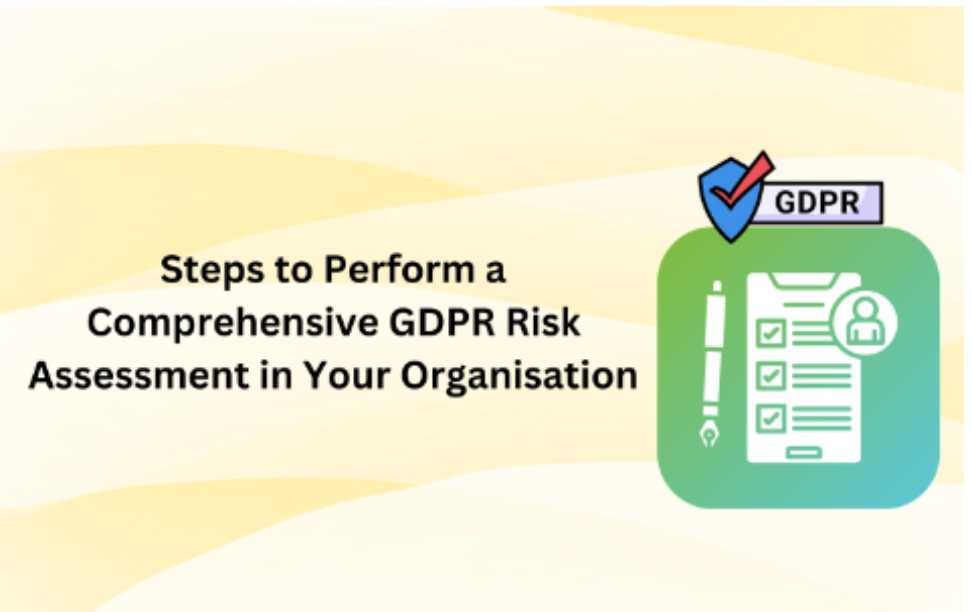The General Data Protection Regulation (GDPR) was introduced to strengthen data protection and privacy for individuals within the European Union (EU) and the European Economic Area (EEA). Obtaining Certification GDPR compliance is a strategic step that offers various benefits to organisations. We will discuss the fundamentals of conducting a thorough GDPR Risk Assessment in this blog, along with the importance of compliance and the Benefits of GDPR Certification. Additionally, organisations can enhance their readiness through specialised GDPR Training Online, ensuring a comprehensive approach to managing GDPR risk assessment processes.
Table Of Contents
- Benefits of GDPR Certification
- Steps to Perform a Comprehensive GDPR Risk Assessment
- Conclusion
Benefits of GDPR Certification
Let’s take a moment to review the advantages of GDPR certification before moving on to the phases of an extensive GDPR risk assessment. Obtaining a GDPR compliance certification requires you to provide proof that your company complies with the rules established by the GDPR. This strengthens your company’s reputation as a responsible data custodian and fosters confidence with partners, clients, and customers.
Accreditation GDPR compliance is a competitive advantage, particularly in a global market where concerns about data privacy are becoming more and more pressing. It can enhance consumer loyalty and show your dedication to safeguarding private information. Additionally, as many businesses favour working with partners who prioritise data protection, GDPR certification might lead to new business prospects.
Steps to Perform a Comprehensive GDPR Risk Assessment
Appoint a Data Protection Officer (DPO)
Assign the duty of managing GDPR compliance to a suitably competent professional. Ensuring that the organisation complies with data protection rules and regulations is a critical responsibility of the DPO.
Identify and Document Personal Data
Make a list of all the personal information that your company handles. Record the categories of information gathered, the reason(s) behind the processing, and the legal foundation for each processing operation. Understanding the extent of your data processing activity requires completing this crucial stage.
Conduct a Data Protection Impact Assessment (DPIA)
This methodical procedure evaluates and reduces the risks related to data processing operations. It ensures that your company is proactive in resolving possible difficulties by assisting in the identification and minimisation of privacy concerns.
Implement Privacy by Design and by Default
Include privacy concerns from the beginning when developing new goods, services, or procedures. Make sure that the highest level of user privacy is prioritised in default settings, and that data protection is a fundamental component.
Establish Data Processing Records
Maintain records of all data processing activities, including the purpose, categories of data, and recipients. Having an extensive record makes it easier to prove compliance in audits and investigations.
Review and Update Privacy Policies and Notices
To ensure compliance with GDPR, periodically evaluate and revise your company’s privacy policies and notices. Make sure there is transparency by explaining to data subjects exactly how their information is being utilised.
Implement Security Measures
Put strong security measures in place to safeguard personal information. This covers access restrictions, encryption, and recurring security evaluations. Create protocols for identifying, documenting, and looking into data breaches.
Ensure Vendor Compliance
Make sure that third-party vendors who receive personal data from your company abide with GDPR laws. Perform due diligence on suppliers and make sure contracts contain data protection provisions.
Employee Training and Awareness
Inform staff members about best practices for security, GDPR laws, and data protection guidelines. Encourage an understanding of data protection in the organisation’s culture.
Regular Audits and Assessments
To guarantee continuous adherence to GDPR, conduct internal audits and assessments regularly. Find any weaknesses and make the necessary improvements as soon as possible.
Conclusion
In today’s data-driven world, doing a thorough GDPR risk assessment is not only required by law but also strategically crucial. Obtaining certification of GDPR compliance can have several advantages and is a sign of an organisation’s dedication to protecting personal data. Organisations may establish trust with stakeholders, negotiate the challenging world of data protection, and establish themselves as pioneers in the digital era of privacy protection by using the suggested procedures.
Have A Look :-
- How To Start Tutoring Business?
- Amazon Stock Price Prediction 2030
- Asia Markets Mixed The Investors Assess With The Private Business Activity Reports From Australia And Japan

